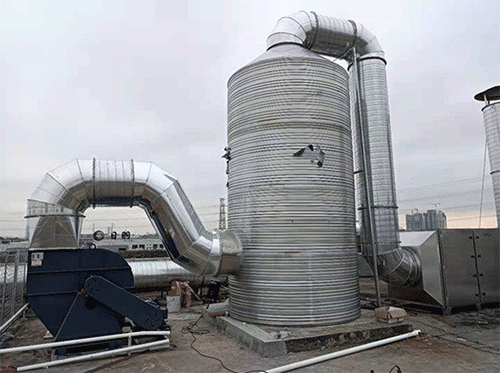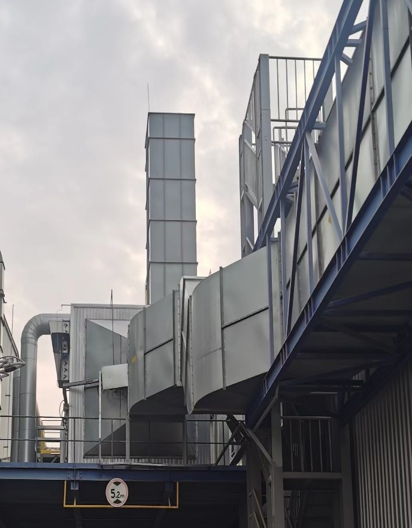Risks and Opportunities Arising from Environmental Pollution
Under "the Brother Group Environmental Policy," we are working to maintain compliance with laws and regulations and prevent environmental pollution in each country and region in which we operate, throughout the life cycle of our products (product development and design; procurement of parts and materials; production; packaging and logistics; use by customers; and collection and recycling). Furthermore, the Brother Group is committed to continuously reducing our environmental impact, recognizes the risks and opportunities of environmental pollution as follows, and is making efforts to prevent pollution through ISO 14001 activities, etc.
| Risks |
|
|---|---|
| Opportunities |
|
Managing and Reducing Chemical Substances
Main activities at business sites in Japan
Brother Industries, Ltd. (BIL) participated in a priority review in line with the introduction of the PRTR system by KEIDANREN (Japan Business Federation) in 1998. BIL started to report the amount of chemical substances transferred and released, starting with those used at business sites in FY1997 (April 1, 1997-March 31, 1998).
Since 2008, BIL has properly stored and systematically commissioned disposal in accordance with "the Act on Special Measures concerning Promotion of Proper Treatment of PCB Wastes." All PCB waste disposal was completed by FY2023.
Regarding fluorocarbons, air conditioning equipment has been managed using "the refrigerant management system" of the Japan Refrigerants and Environment Conservation Organization (JRECO) since 2015 after "the Act on Rational Use and Appropriate Management of Fluorocarbons" came into force (April 2015). This system enables centralized monitoring of the operating statuses of about 1,600 air conditioners at BIL in Japan. In FY2024, there was no leakage exceeding a level that requires reporting.
Main activities at manufacturing facilities outside Japan
Manufacturing facilities outside Japan have identified applicable laws and regulations in respective regions within ISO 14001 systems. Management frameworks have also been established to ensure local environmental management. The Brother Green Procurement Management System is in operation with collaboration with suppliers to carefully select parts, materials and sub-materials used in production processes to prevent contamination with harmful chemical substances.
Concept of Preventing Air, Water, and Soil Pollution
The Brother Group gives high priority to preventing environmental accidents by reviewing target facilities and processes and switching to alternatives that are less likely to cause pollution in a timely manner. When managing existing facilities, activities to prevent pollution include setting and complying with voluntary management targets through ISO 14001.
Preventing air pollution
The Brother Group is striving to prevent air pollution. For example, we have replaced fossil fuel-fired boilers and heaters with electric or city gas-fired boilers and heaters, thus reducing the impact of emissions on the environment. City gas has a low CO2 emission coefficient.
BIL has abolished heavy oil-fired boilers, which contribute to air pollution, at all of our business sites, including employees' dormitories. Solar water heaters and heat pump equipment have mainly replaced the heavy-oil fired boilers used for employees' dormitories at manufacturing facilities outside Japan. The electricity supply for Brother Technology (Shenzhen) Ltd. (BTSL) in Huanan, China, which had relied on private power generation systems fueled by heavy oil, was replaced by the city's public utility service. Through these initiatives, BIL is reducing the risks of air pollution and global warming caused by CO2 emissions, as well as soil and underground water contamination.
For the reduction of volatile organic compounds (VOC) emissions, BIL is switching to materials with lower organic solvent content and reducing their usage. Meanwhile, BTSL sets up VOC treatment system in 2015 for the emissions from the processes used to form resin products and manufacture printed wiring boards for mounting parts. At the same time, the VOC treatment facilities are working toward preventing air pollution.
Brother Machinery Xian Co., Ltd. is continuing its efforts to prevent air pollution through measures such as upgrading exhaust gas treatment system in 2021 and making improvements to connect to a VOC treatment system in FY2022 for more efficient removal of pollutants in the exhaust gases from the high-temperature treatment process.


Preventing water pollution
BIL is taking the following measures to prevent water pollution:
In FY2011, BIL installed a wastewater treatment facility at the Kariya Factory to treat our wastewater with the latest membrane bioreactor.
Brother Industries Saigon, Ltd. in Vietnam to treat wastewater from the parts cleaning process, Brother Machinery Xian Co., Ltd. in China to treat coating pretreatment wastewater, and Taiwan Brother Industries, Ltd. established wastewater treatment facilities to treat coating pretreatment wastewater. Brother Industries (Vietnam) Ltd., which expanded its factory in 2012, upgraded the conventional wastewater treatment facility with a biofilm type facility. The increased treatment capacity has significantly lowered the environmental impact values of wastewater.
At sites without sewage infrastructure, facilities have been installed to clean sewage and treat the resulting wastewater. These facilities comply with regional standards in accordance with the ISO 14001 facility management procedure. As part of Brother's preventative measures, we periodically conduct emergency drills for hypothetical incidents such as hazardous wastewater flowing into sewage, public water sources, or permeating into soil. Other specific preventative measures include equipping wastewater treatment facilities with systems which constantly monitor chemical oxygen demand (COD) and installing oil traps for wastewater from cafeterias, to cope with an oil outflow accident. Biochemical oxygen demand (BOD) and n-hexane extracts (an index of the oil content in water, etc.) are regularly measured and monitored.
Preventing soil contamination
The Brother Group is committed to preventing soil and groundwater contamination resulting from its business activities and managing related risks appropriately.
Since initiating soil investigations in 1997 for chlorinated organic compounds and hazardous heavy metals previously used at its factories, the Group has been conducting soil surveys in accordance with relevant laws and regulations when establishing or closing business sites, or when selling land. When contamination is identified, the Group takes appropriate remedial actions, such as soil purification, containment measures, and regular monitoring. It also ensures proper disclosure of information about these matters to relevant authorities and local communities.
Preventing generation of noise, vibration, and offensive odors
BIL has been working on initiatives to prevent the generation of noise, vibration, and offensive odors so as not to cause inconvenience to local communities, including homes, schools, and pedestrians. Sources of generation are relocated or converted to achieve reduction. Proper action is taken against noise, vibration, and offensive odors that exceed the standard values. Generation of noise, vibration, and offensive odors is prevented by establishing more rigorous voluntary standards and ensuring continuous monitoring.
Water Pollution Load
| FY2020 | FY2021 | FY2022 | FY2023 | FY2024 | ||
|---|---|---|---|---|---|---|
| Water pollution load(t) | BOD | 37.8 | 29.3 | 31.2 | 19.5 | 21.3 |
| COD | 95.3 | 68.4 | 48.1 | 36.8 | 48.0 | |
| N-hexane extracts | 0.7 | 0.5 | 1.5 | 0.5 | 0.6 | |
| SS | 29.4 | 12.0 | 15.6 | 6.6 | 7.9 | |
For the list of applicable sites, see page 8 of "Material balance" [PDF/239KB].

